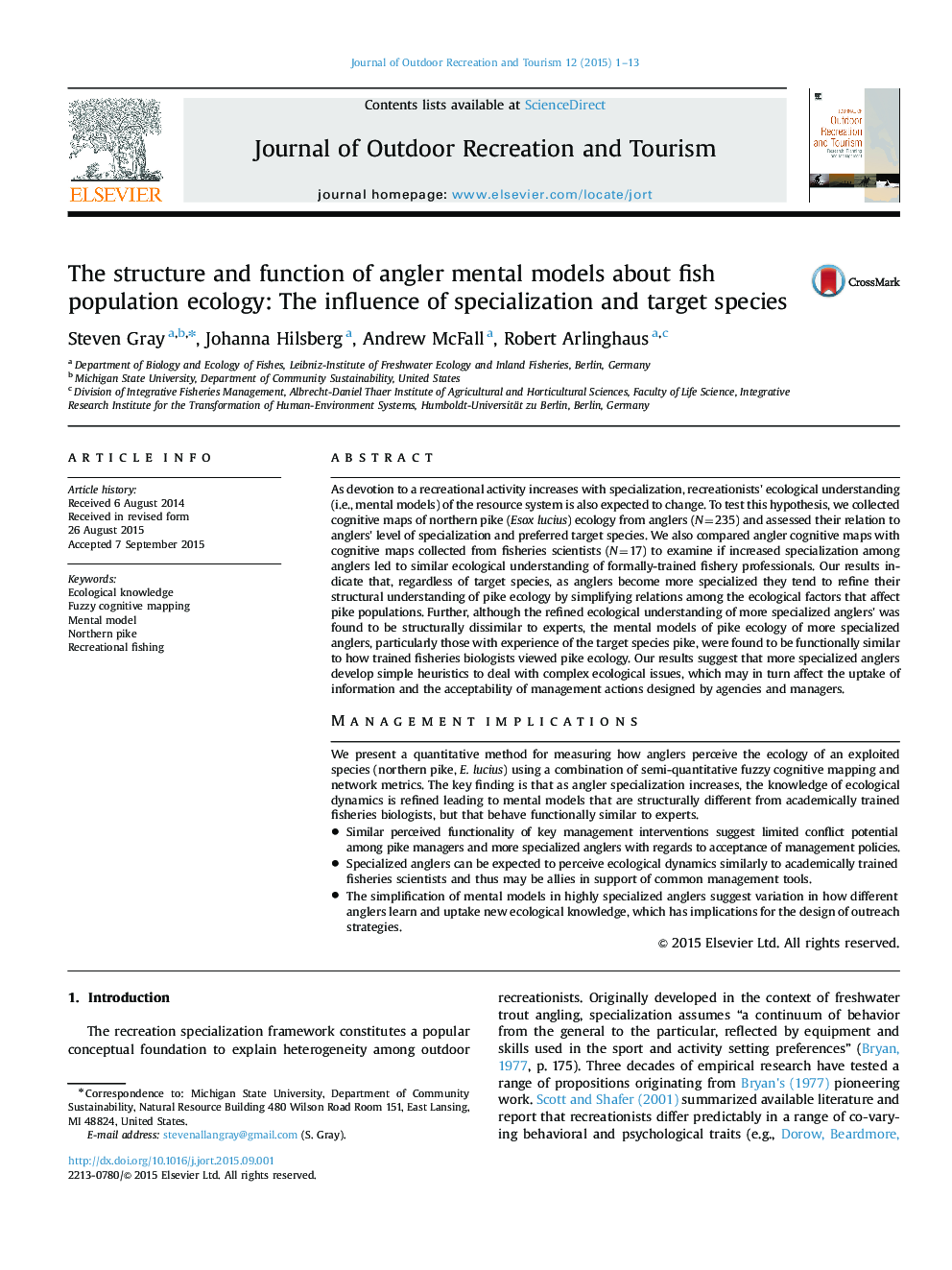| کد مقاله | کد نشریه | سال انتشار | مقاله انگلیسی | نسخه تمام متن |
|---|---|---|---|---|
| 92381 | 159953 | 2015 | 13 صفحه PDF | دانلود رایگان |
As devotion to a recreational activity increases with specialization, recreationists' ecological understanding (i.e., mental models) of the resource system is also expected to change. To test this hypothesis, we collected cognitive maps of northern pike (Esox lucius) ecology from anglers (N=235) and assessed their relation to anglers' level of specialization and preferred target species. We also compared angler cognitive maps with cognitive maps collected from fisheries scientists (N=17) to examine if increased specialization among anglers led to similar ecological understanding of formally-trained fishery professionals. Our results indicate that, regardless of target species, as anglers become more specialized they tend to refine their structural understanding of pike ecology by simplifying relations among the ecological factors that affect pike populations. Further, although the refined ecological understanding of more specialized anglers' was found to be structurally dissimilar to experts, the mental models of pike ecology of more specialized anglers, particularly those with experience of the target species pike, were found to be functionally similar to how trained fisheries biologists viewed pike ecology. Our results suggest that more specialized anglers develop simple heuristics to deal with complex ecological issues, which may in turn affect the uptake of information and the acceptability of management actions designed by agencies and managers.Management implicationsWe present a quantitative method for measuring how anglers perceive the ecology of an exploited species (northern pike, E. lucius) using a combination of semi-quantitative fuzzy cognitive mapping and network metrics. The key finding is that as angler specialization increases, the knowledge of ecological dynamics is refined leading to mental models that are structurally different from academically trained fisheries biologists, but that behave functionally similar to experts.
• Similar perceived functionality of key management interventions suggest limited conflict potential among pike managers and more specialized anglers with regards to acceptance of management policies.
• Specialized anglers can be expected to perceive ecological dynamics similarly to academically trained fisheries scientists and thus may be allies in support of common management tools.
• The simplification of mental models in highly specialized anglers suggest variation in how different anglers learn and uptake new ecological knowledge, which has implications for the design of outreach strategies.
Journal: Journal of Outdoor Recreation and Tourism - Volume 12, December 2015, Pages 1–13
